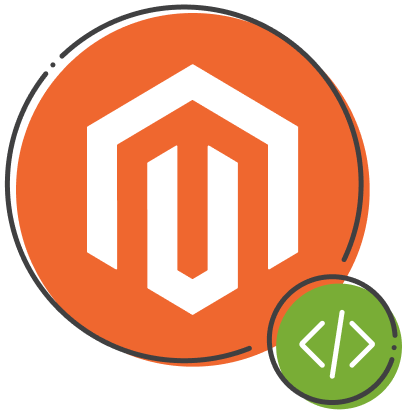Earlier this year, in our blog post What is Mage-OS and Why Did We Join?, we talked about the current state of Magento and how Mage-OS was helping propel the platform into the future.
To give a short recap:
Mage-OS Distribution is an independent and community driven fork of Magento Open Source that retains compatibility while allowing the freedom to innovate and push the platform forward. With Adobe’s primary focus on Adobe Commerce, the aim of Mage-OS is to put the platform back into the hands of the community and bring back tangible improvements in the form of new features and enhancements while lowering the barrier of entry for merchants and developers.
In other words, Mage-OS wants to ensure the original values of an open source eCommerce platform remain intact. It seeks to empower smaller businesses and developers who rely on Magento without the need for expensive enterprise solutions.
The Role of Open Source in eCommerce
Throughout the years, open-source development has significantly contributed to and shaped eCommerce platforms. It has encouraged innovation, reduced costs and increased flexibility for developers and businesses. Developers can share best practices and innovations and learn from each other which benefits the entire ecosystem.
Open source platforms like Magento and WooCommerce have historically relied on contributions of developers worldwide. For example, Magento’s community has contributed with updates and plugins, fixing bugs and optimizing performance which has kept the platform on the cutting edge of eCommerce technologies. It allows for extensive customization, giving businesses the flexibility to modify the source code to their specific needs and expand beyond the bounds of existing code.
Using an open source platform gives you control over your online store’s design and functionalities while reducing reliance on a single vendor and their product. It gives you independence from being locked into specific technologies or pricing models. You have the flexibility to customize the software according to how it best suits your business needs.
The downside when working with open source software is it requires time and special knowledge. Taking full advantage of an open source platform will require expertise and hiring a web developer to help you along and customize the platform to meet your needs.
How Mage-OS Restores the Role of Open Source for Magento
With Adobe’s shift towards an enterprise-level, paid version of Magento, concerns had emerged about the future of the open-source version of the platform.
Mage-OS promotes a more decentralized and community-led approach to development. It provides a way for the Magento developer community to contribute, innovate, and collaborate on the evolution of the platform. This democratizes the development process, allowing for more diverse input and quicker updates to the software. With an independent organization overseeing the platform, decisions about the platform’s direction, features, and updates can be made in a more transparent and inclusive manner, ensuring the community has a say in its future.
Through this approach, Mage-OS offers a sustainable path for Magento Open Source. It ensures developers and smaller businesses can continue using and improving the platform without being tied to enterprise licensing fees or closed development while also providing a new sense of ownership and direction for Magento Open Source.
As a community led initiative, Mage-OS can also prioritize the needs of smaller businesses and independent developers who may be overlooked by Adobe’s enterprise focus. It can focus on building features and improvements that are especially beneficial to the open-source user base, ensuring the platform remains user-friendly and versatile.
Let’s hear from Terezija, our backend developer, on how she sees the recent development of Mage-OS:
I’m glad to see that the Mage-OS community is becoming more prominent and recognizable in the Magento world. There have been some delays in the development process, but it’s slowly getting back on track as everyone returns to their working routine after the summer calm.
Just recently, progress on the new admin theme and page builder updates was presented, and it was so great to actually see the progress that’s been made since the introduction of these improvements. I’m looking forward to implementing the announced features, such as fixing default search suggestions and indexer improvements. All that will automatically reflect on Inchoo’s Traktor Servis webshop and future Mage-OS based webshops, which is excellent!
Our First Mage-OS Project: Traktor Servis
In September 2024, we launched our latest project for our client, Traktor Servis. This is among the first stores ever released on the Mage-OS distribution.
The Mage-OS distribution was chosen to ensure the accessibility, longevity, and success of the Magento platform. We particularly focused on ensuring and establishing a safe and secure infrastructure and environment for our client and their new online store. Our main goal was to provide future users with a clean, simple and user-friendly website that will be easy to navigate while at the same time providing them with key functionalities from the automotive industry.
Another one of our backend developers, Jurica Šoštarić, explored in more detail why we chose Mage-OS for this project in his blog post after the launch of the web store. The team was excited from the start to put Mage-OS into action, and in spite of some early challenges, they were able to confirm that migrating an existing project to Mage-OS was fully possible.
Let’s hear more from Jurica about working with Mage-OS:
Successfully launching our first Mage-OS website was a significant milestone for our team. From a developer’s standpoint, the process of transitioning from Magento to Mage-OS was smoother than anticipated, and despite some initial challenges with tool compatibility and the uncertainty regarding security patches, the Mage-OS team’s timely updates ensured we could meet our deadlines without compromising security.
Our work on this project marks the beginning of what we believe will be a promising journey with Mage-OS. This experience has proven its viability for future projects. We look forward to continuing to innovate and build upon this foundation.
The Future of Mage-OS and the Impact of Open Source
By tapping into the power of open source and offering a community-driven approach to platform development, Mage-OS is a step forward for the Magento community. Mage-OS ensures that the open-source values of flexibility, innovation, and collaboration remain at the forefront of eCommerce.
Our experience with the Traktor Servis project has reinforced the potential of Mage-OS, showing it to be a viable option for future web projects. As both Terezija and Jurica have explained, we are excited to continue exploring its capabilities and contributing to its growth alongside the broader Magento community.
At the time of publishing of this article, Mage-OS continues to innovate and build upon its foundation, with new functionalities on the way and many still in work!






